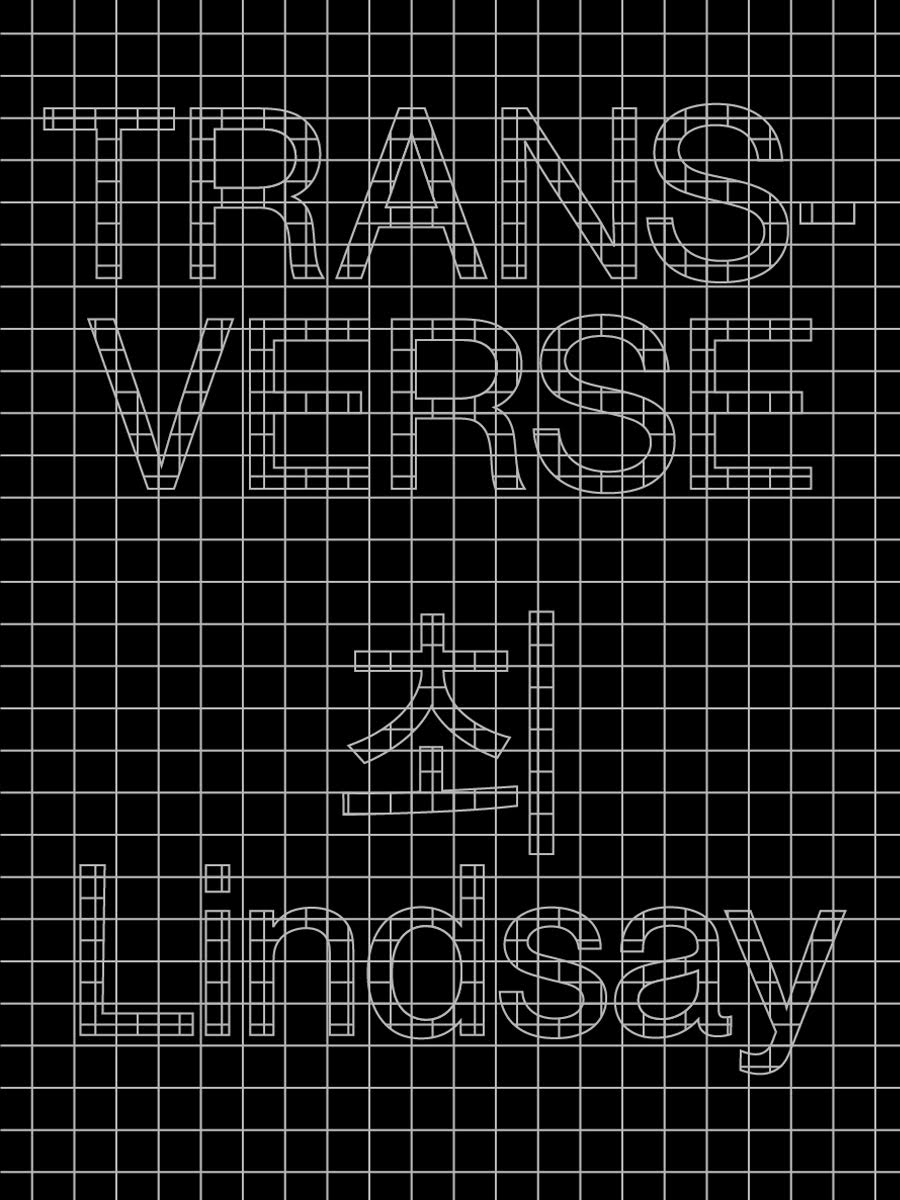Transverse
Lindsay Choi
Transverse weaves between languages and forms, cultivating the questions and lacunae that emerge in their encounter. In the three parts that make up the book, music, mathematics, philosophical logic, and lyric convention come in and out of relation to press upon questions of form and meaning-making, and attend to the moments when coherence appears to take place or dissolve. Following sonic and visual echos, practices and plays upon citation, Transverse traces and distorts logics of allegory, repetition, and representation, moving towards an inquiry into the nature of our encounter with and recognition of the world.
Praise for Transverse
—Lyn Hejinian
—Brandon Shimoda
Taking after the geometries of Adrian Piper and Madeline Gins, 최 Lindsay's mathematics are not cruel or causal frictions but forms made kinetic, eloquent. Like air flexing in a wrist joint, light glancing off a pupil, 최 posits fractal inflections of hangul, braided disruptions of lyric, as a means towards permeability. No fossil here, instead, transitive speech act. Charting as the dented foundation that belies a changing consciousness; I slide in and out. I touch ghost, an egg, carnage, a flower. Precarious diagonal of arms, holding; like this I can almost hold it all.
— Trisha Low
About the Author
최 Lindsay | Lindsay Choi is a poet and translator working between English, Korean, and Swedish. In addition to Transverse, they are the author of a chapbook, Matrices, (speCt! books, 2017). They are a Kundiman Fellow and a Ph.D. student in English Literature at UC Berkeley. Their work can be found in Omniverse, Amerarcana, Aster(ix) Journal, and elsewhere. They are a founding co-editor, with Noah Ross, of the chapbook press MO(O)ON/IO. Their work has been translated to French, and appears in NIOQUES, 22/23: Nouvelle Poésie Des Étas-Unis (New U.S. Poetry), edited by DoubleChange Collective, and translated by Abigail Lang.
Transverse weaves between languages and forms, cultivating the questions and lacunae that emerge in their encounter. In the three parts that make up the book, music, mathematics, philosophical logic, and lyric convention come in and out of relation to press upon questions of form and meaning-making, and attend to the moments when coherence appears to take place or dissolve. Following sonic and visual echos, practices and plays upon citation, Transverse traces and distorts logics of allegory, repetition, and representation, moving towards an inquiry into the nature of our encounter with and recognition of the world.
Praise for Transverse
—Lyn Hejinian
—Brandon Shimoda
Taking after the geometries of Adrian Piper and Madeline Gins, 최 Lindsay's mathematics are not cruel or causal frictions but forms made kinetic, eloquent. Like air flexing in a wrist joint, light glancing off a pupil, 최 posits fractal inflections of hangul, braided disruptions of lyric, as a means towards permeability. No fossil here, instead, transitive speech act. Charting as the dented foundation that belies a changing consciousness; I slide in and out. I touch ghost, an egg, carnage, a flower. Precarious diagonal of arms, holding; like this I can almost hold it all.
— Trisha Low
About the Author
최 Lindsay | Lindsay Choi is a poet and translator working between English, Korean, and Swedish. In addition to Transverse, they are the author of a chapbook, Matrices, (speCt! books, 2017). They are a Kundiman Fellow and a Ph.D. student in English Literature at UC Berkeley. Their work can be found in Omniverse, Amerarcana, Aster(ix) Journal, and elsewhere. They are a founding co-editor, with Noah Ross, of the chapbook press MO(O)ON/IO. Their work has been translated to French, and appears in NIOQUES, 22/23: Nouvelle Poésie Des Étas-Unis (New U.S. Poetry), edited by DoubleChange Collective, and translated by Abigail Lang.
